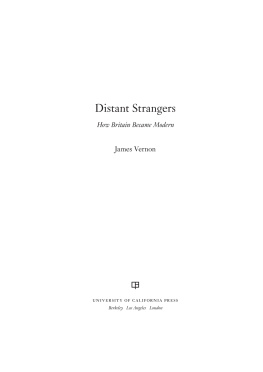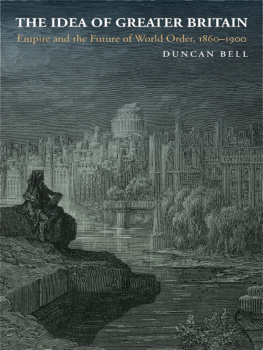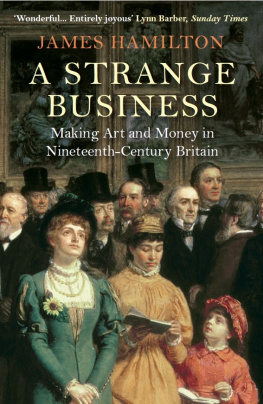THE PENGUIN HISTORY OF BRITAIN
General Editor: David Cannadine
I: DAVID MATTINGLY An Imperial Possession: Britain in the Roman Empire, 54 BCAD 409
II: ROBIN FLEMING Britain After Rome: The Fall and Rise, 4001070
III: DAVID CARPENTER The Struggle for Mastery: Britain 10661314
IV: MIRI RUBIN The Hollow Crown: Britain 12721485
V: SUSAN BRIGDEN New Worlds, Lost Worlds: Britain 14851603
VI: MARK KISHLANSKY A Monarchy Transformed: Britain 16031714
VII: LINDA COLLEY A Wealth of Nations?: Britain 17071815
VIII: DAVID CANNADINE Victorious Century: The United Kingdom 18001906
IX: PETER CLARKE Hope and Glory: Britain 19002000
forthcoming
Preface and Acknowledgements
Although I did not know it at the time, I was lucky enough to grow up in what were in many ways the final years of the long nineteenth century namely the 1950s. At the beginning of that decade, the United Kingdom was still a formidable international power, with a large navy and a world-encompassing empire; the traditional staple industries remained coalmining, steel manufacturing, engineering and textiles; London, Liverpool and Glasgow were among the pre-eminent ports in the world, just as Cunard, Canadian Pacific, the Royal Mail Lines and P&O were some of the greatest global shipping firms; houses were warmed and factories were powered by coal, goods trains and passenger expresses were pulled by steam engines, and as a result, Holmes-and-Watson fogs were still a common occurrence. Much of the Birmingham where I grew up would have been instantly recognizable to Joseph Chamberlain, who had been by turns a reforming mayor, an advanced Liberal, and an assertive imperialist, and who will be a significant figure in the later chapters of this volume. This was especially true of the magnificent ensemble of public buildings surrounding the square that bore Chamberlains name: the Birmingham and Midland Institute, the Reference Library (where I spent many happy hours), the Town Hall, the Council House and Art Gallery, and Mason College. Corporation Street was very much as Chamberlain had created it, the tramlines remained in many of the cobbled city-centre thoroughfares, and just a short distance away was Edgbaston, a quintessential Victorian suburb, where some of Chamberlains descendants still lived. My four grandparents had all been born during the 1880s, and they seemed to me very old, and very Victorian; they invariably dressed in black, as if still in mourning for the Gas-Lit Gloriana who had reigned during their youth. My fathers parents lived in a nineteenth-century terraced house in Birmingham with an outside lavatory, and my mothers parents, who lived in what was then known as the Black Country, went every year to Blackpool for their summer holidays. Both their houses seemed full of nineteenth-century novels and atlases, along with coins and stamps with images of Queen Victoria, who thus became a real presence in my life from an early age.
My four grandparents died between 1961 and 1970, breaking my personal link to Britains nineteenth-century past. During that same decade, the United Kingdom itself began to de-Victorianize and embrace modernity, and this was vividly and literally brought home to me as much of Joseph Chamberlains Birmingham was torn down, including many of its finest public buildings. Entire streets of the sort of houses in which my Cannadine grandparents had lived were demolished, to be replaced by offices, shops, hotels and flats. The grammar school that I attended was a creation of the 1880s, but it had left its original, inner-city home a few years before I became a pupil there, and it had been transformed into a concrete and plate-glass academy relocated on the edge of the city. But as much of Victorian Birmingham was disappearing before my very eyes, the serious study of the nineteenth-century past was simultaneously beginning in earnest; and having grown up during the last decade when much of it had still been real and visible, I was equally fortunate to live through the first decade of the twentieth century the 1960s in which a new generation of post-war scholars was bringing that rapidly vanishing world alive again. Pre-eminent among them was Asa Briggs: I can still recall the sense of excitement with which I read his history of Birmingham (appropriately in the Reference Library), covering the citys heroic years from 1865 to 1938; soon after I devoured Victorian People and Victorian Cities; and like many sixth-formers, I relied on The Age of Improvement to help me pass History A Level. Ever after, Briggs would remain an iconic and inspirational figure, as well as being in some ways a quintessential Victorian himself in his boundless energy, his incorrigible optimism and his exceptional public-spiritedness. But by the 1960s, he was joined by many other pioneering scholars, including Robert Blake, Norman Gash, George Kitson Clark, Eric Hobsbawm, Harold Perkin, and two historians of Africa who were invariably known as Robinson and Gallagher, as if they were a firm of solicitors rather than a pair of academics.
So it was perhaps over-determined that as an undergraduate reading history at the University of Cambridge from 1969 to 1972, I should concentrate on nineteenth-century Britain, not only in terms of its domestic past, which in those days was deemed to consist exclusively of political and constitutional, and social and economic history, but also in its interactions with the greater world of the British Empire and Commonwealth and with what were deemed by some scholars to be its informal realms in Latin America. Thereafter, I resolved to investigate the relations between aristocratic landowners and the management of their estates bordering on large towns or the seaside, and Edgbaston, which had been developed as the Belgravia of Birmingham by the Calthorpe family, seemed the obvious place to begin. Entirely by chance, I began my researches at just the time when Professor H. J. Dyos of the University of Leicester was defining and proclaiming the new sub-discipline of urban history in part in response to the widespread demolition and destruction of large areas of Victorian cities that I had witnessed at first hand in Birmingham. Since then, scholarly approaches to the past have widened in many ways and diversified in many directions, with the rise of womens history, cultural history and the new imperial history, while the IT revolution has made available many new sources, which means it is now possible to research topics that were impractical and unthinkable a quarter of a century ago. As a result, the study of the past has become a much more varied, complex, multi-layered enterprise, and that has certainly been true of the British nineteenth century, about which more scholars are writing more kinds of history than ever before.
But this welcome and prodigious expansion in academic labour also has its downside, as it is now impossible for anyone to keep up with the unrelenting outpouring of academic literature in the way that was still practicable when I was starting out in the early 1970s. So much learning, so much erudition and so much information has undoubtedly extended and enriched our knowledge in ways that were unforeseeable and unimaginable several decades ago. But this has also had a dampening and deadening effect, which may explain why, in recent decades, the focus of scholarly interest and excitement has moved backwards, to a rejuvenated eighteenth century, where Namerite torpor and Thompsonian simplicities have alike been banished, and forward to the twentieth century where the opening of official records and other archival collections means it has become a fertile and compelling field, in which new discoveries are constantly being made. By contrast, the British nineteenth century has for some time been in what Miles Taylor calls a state of suspended animation, and he believes it needs to be brought back to life. This book is one such attempt at historical resurrection and scholarly resuscitation. As with the other volumes in the

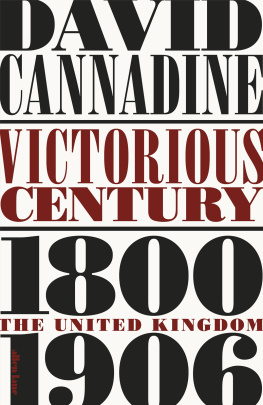

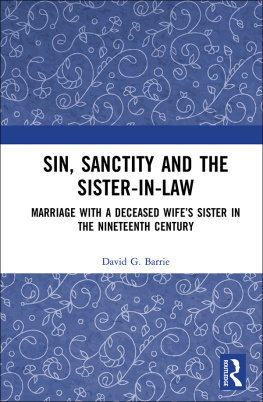
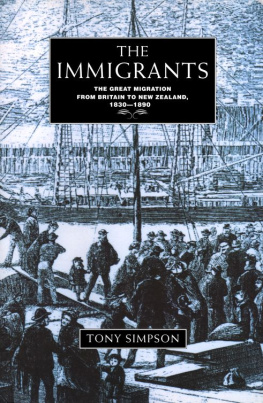

![Harvie Christopher - Nineteenth-century Britain: a very short introduction ; [in memorian Colin Matthew]](/uploads/posts/book/137651/thumbs/harvie-christopher-nineteenth-century-britain-a.jpg)
